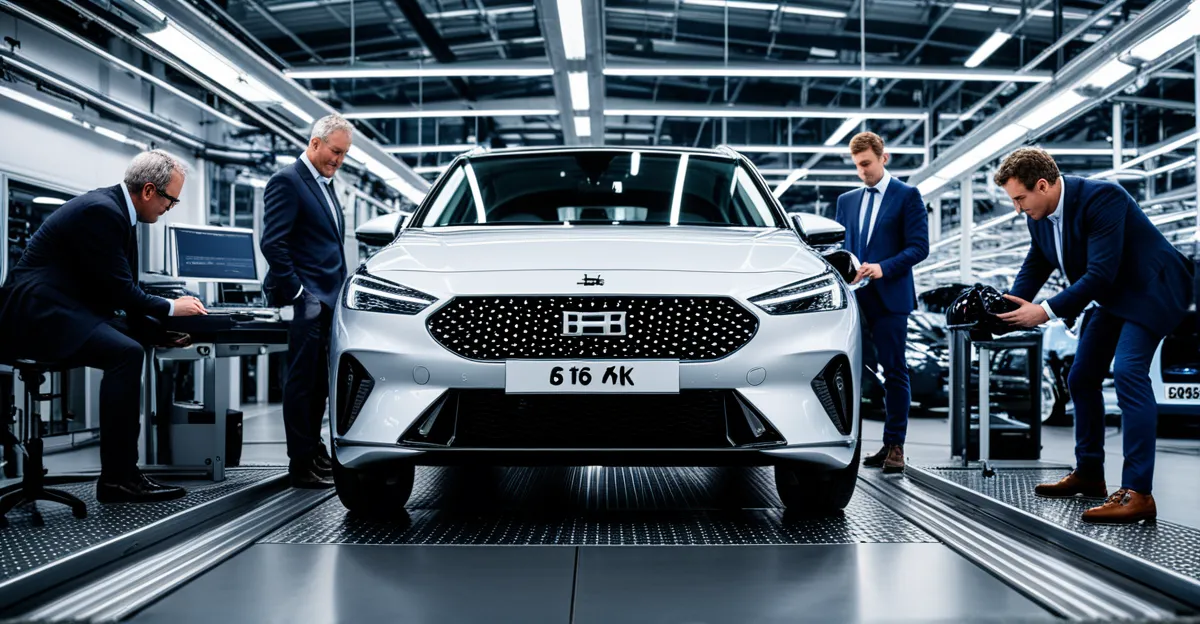Mechanics of Collaboration Between UK Auto and Tech Firms
Understanding the mechanics behind collaboration between UK auto companies and the tech industry reveals a multifaceted strategy. Partnerships typically take shape as joint ventures, R&D collaborations, or technology licensing agreements, each designed to leverage complementary strengths.
The core motivation centers on accessing specialized expertise. UK auto companies seek to integrate cutting-edge technologies, while tech firms look to enhance practical applications in mobility. Together, they create a competitive advantage that neither could achieve alone.
Have you seen this : How are UK car manufacturers innovating in vehicle safety technologies?
These collaborations primarily focus on sectors such as AI, electric vehicles (EVs), and autonomous driving. AI supports smarter, data-driven vehicle functions, EV innovation addresses environmental demands, and autonomous driving promises transformative changes in safety and convenience.
Such strategic partnerships streamline innovation by pooling resources, sharing risks, and accelerating development timelines. This synergy is vital in a market where rapid technological evolution is the norm, ensuring the UK remains competitive globally while advancing automotive innovation.
Additional reading : How are UK automakers responding to consumer demand for smart vehicles?
Notable Recent Partnership Announcements and Projects
Recent UK automotive industry news highlights several high-profile collaboration projects that showcase increasing synergy between UK auto companies and the tech sector. A prominent example is the joint venture between a major UK automaker and a leading tech firm focused on electric vehicle (EV) battery development, aiming to address range and charging efficiency challenges. This partnership exemplifies how combining automotive expertise with tech innovation accelerates breakthroughs critical to EV adoption.
Another significant project involves the integration of AI-powered autonomous driving systems, where a UK auto manufacturer works closely with a software giant to develop next-generation driver-assistance technologies. These efforts aim to enhance safety and convenience, with anticipated rollout in urban test zones.
Furthermore, technology licensing agreements have enabled smaller UK firms to integrate cutting-edge AI algorithms into connected vehicle platforms, improving real-time data processing and user experience.
Collectively, these projects underline the importance of targeted technology integration in boosting the competitive edge of UK auto companies. The focus on AI, EV, and autonomous solutions demonstrates the sector’s commitment to leading automotive innovation, responding to evolving market demands and regulatory pressures effectively.
Role of Digital Transformation and Technological Integration
Digital transformation in the UK automotive sector hinges on the seamless tech integration of AI, machine learning, and the Internet of Things (IoT) within vehicles. These technologies enable connected vehicles to interact with their environment, improving real-time responsiveness and safety features. For example, AI algorithms process vast sensor data to support adaptive cruise control and collision avoidance, enhancing driver assistance systems.
Collaboration between UK auto companies and tech firms has led to the development of sophisticated digital platforms that manage vehicle diagnostics, predictive maintenance, and personalized user experiences. This integration streamlines data flows from vehicle to cloud, facilitating over-the-air updates and continuous system improvements.
Enhanced connectivity also fosters novel services like remote monitoring and smart navigation, leveraging machine learning to optimize travel routes and energy use. Such advancements demonstrate how digital transformation transforms vehicles into dynamic, data-driven systems.
Overall, the fusion of digital technology and automotive expertise results in safer, more efficient vehicles, aligning with consumer expectations for connected vehicles while reinforcing the UK’s position in global automotive innovation. This underscores why ongoing tech integration remains vital within the industry’s evolution.
Key Players in UK Auto-Tech Collaborations
The UK auto manufacturers spearheading collaboration efforts include renowned companies such as Jaguar Land Rover, Aston Martin, and Nissan UK. These industry leaders invest heavily in partnerships to accelerate automotive innovation and stay competitive. Their deep-rooted engineering expertise pairs effectively with the agility of tech firms.
On the technology side, prominent players include software giants, AI startups, and hardware innovators. Companies like ARM and Renishaw contribute specialized capabilities in AI algorithms, sensor technology, and machine learning integration. These tech companies partnerships bring critical digital skills and novel solutions to the automotive sector.
Additionally, consortiums and alliances play a crucial role. Groups such as the Advanced Propulsion Centre facilitate collaboration across multiple stakeholders, including academia and smaller startups. Startup accelerators support emerging firms focused on AI and autonomous driving, helping them integrate with established UK automakers.
Together, these industry leaders form a vibrant ecosystem. This collaborative network enhances knowledge sharing, speeds innovation cycles, and strengthens the UK’s position in the global automotive landscape. Such diverse partnerships are essential to driving forward the complex challenges of digital transformation and sustainable mobility.










